
views
Finding People With Similar Interests

Do things you enjoy. Friendships are built on commonalities. People who share a similar interest or experience are more likely to engage with each other and genuinely find one another interesting. To find these people, you have to go out and do things in the community that you enjoy. The other people doing those things are great potential friends. Check your local newspaper and any other local event resources to find out about events in your area. You might even sign up for a mailing list to receive info about an organization’s events. For example, you might: Volunteer for a cause that you are passionate about. Visit popular attractions. Attend local events such as concerts or festivals.

Meet people at work. Not every co-worker will become a lifelong friend, but there is something to be said about the shared lifestyles of people who work together. On average, you are spending forty or more hours per week doing work in the same field. This gives you a lot of material for conversation. Invite a co-worker to lunch or an evening event to connect with them beyond the workplace. You could also participate in company sponsored events like parties or fundraisers. Having friends in your work field can also boost your chances of moving up in your field. Be careful about which of your colleagues you befriend to avoid conflicts of interest. For example, it might not be a good idea to befriend someone you supervise because this may result in other employees accusing you of favoritism.
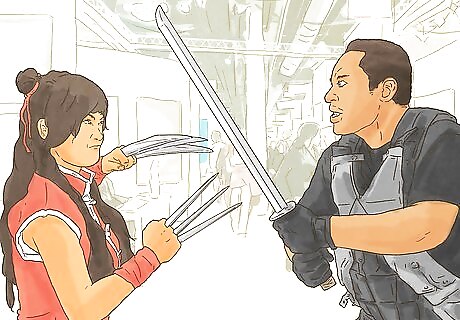
Go to themed meet ups. Anything from church to Comicon could house many potential friends. The trick is to find something with a theme that you are interested in and passionate about. Introduce yourself to others at the event and keep in touch with anyone that you find particularly interesting. Try checking out Meetup.com for local events. This is a great resource, especially if you have just moved to a new city.
Choosing Inspiring Friends

Look for friends with discipline. We all run a little low on self-discipline from time to time. Studies show, however, that our friends can make or break us in these times. Choose friends that are disciplined and you will be more motivated to reach your own goals. Choose friends that are reckless and you are more likely to go along with their behavior and blow off your own responsibilities. Examples of disciplined friends are people who: Go to work when they are supposed to. Pay their bills. Take care of themselves physically, mentally, and emotionally. Have successful careers, relationships, etc.
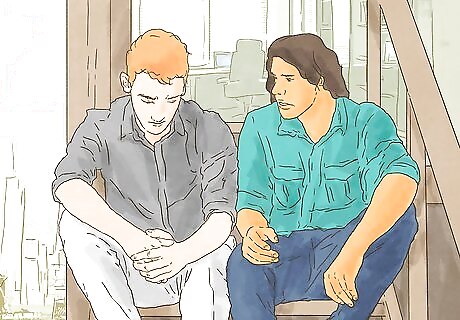
Keep friends that bond emotionally. While common interest can start a friendship, it isn’t enough to sustain one. Friends need to bond emotionally. Friends that offer you emotional support during difficult times are essential to a healthy, happy life. Make sure that you return the favor and show support for your friend, too. Gravitate towards people who: Check in with you to see how you are doing. You can rely on to help you in difficult times. Allow themselves to be vulnerable with you and seem trusting of you.
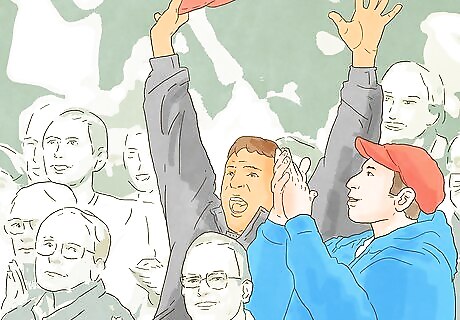
Surround yourself with positive people. The attitudes of your friends will influence your own attitude. By surrounding yourself with positive friends, you will be uplifting your own attitude. Simply avoid pursuing a friendship with anyone who seems rude, self-centered, or pessimistic. This way, you won’t have to break off that friendship later. Be on the lookout for people who are: Nice and helpful to strangers. Optimistic about their career, family, and life.
Avoiding Toxic Friends
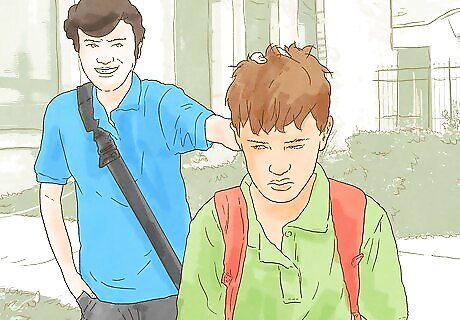
Consider the person’s impact on your happiness. Try to make friends with people that make you feel good, but keep in mind that difficult conversations within relationships are sometimes necessary. However, if you frequently feel unwelcome or unappreciated around someone, do not try to build a friendship with them. You are under no obligation to befriend anyone who makes you feel bad. Ask yourself after having spent time with someone “Did I enjoy myself?” If the answer is yes, spend more time with them. If the answer is no, spend less time with them.

Let go of friends that make you feel bad. Sometimes old friends change, or we change and they remain the same. When this happens, your old friend may make you feel bad. This can range anywhere from feeling guilty about your success to being uncomfortable with the situations you end up in with that friend. When this happens, you should let go of that friendship and allow yourself to move on to friendships that better fit your needs. For example, you might tell your college friend “I know we used to have a lot of fun partying, but now I have responsibilities that I take seriously. I am not interested in living the same lifestyle that you live.” If a friend is engaging in irresponsible behavior without acknowledging a need to change, then it may be time to let go of that friendship.
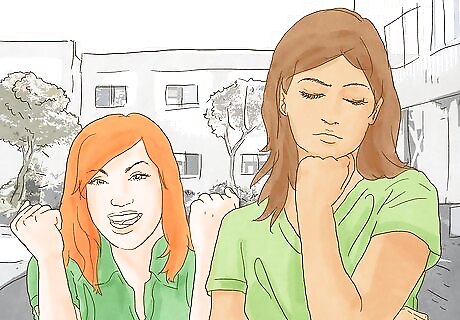
Cut ties with anyone that abuses your relationship. People abuse relationships in many ways. Your friend might constantly borrow money off of you and never pay it back, they might call at all hours of the night for emotional support but never answer your calls, or they might be physically abusive. Regardless of the type of abuse or manipulation, friendships aren’t meant to operate this way. Both sides should be giving and receiving emotional and other support. If you are being abused or manipulated, you likely won’t enjoy the time you spend with that friend anyway. Your friends should be understanding when you tell them you can't hang out or that you're not willing to do something they want you to do. You shouldn't feel like you're reporting to a boss.



















Comments
0 comment